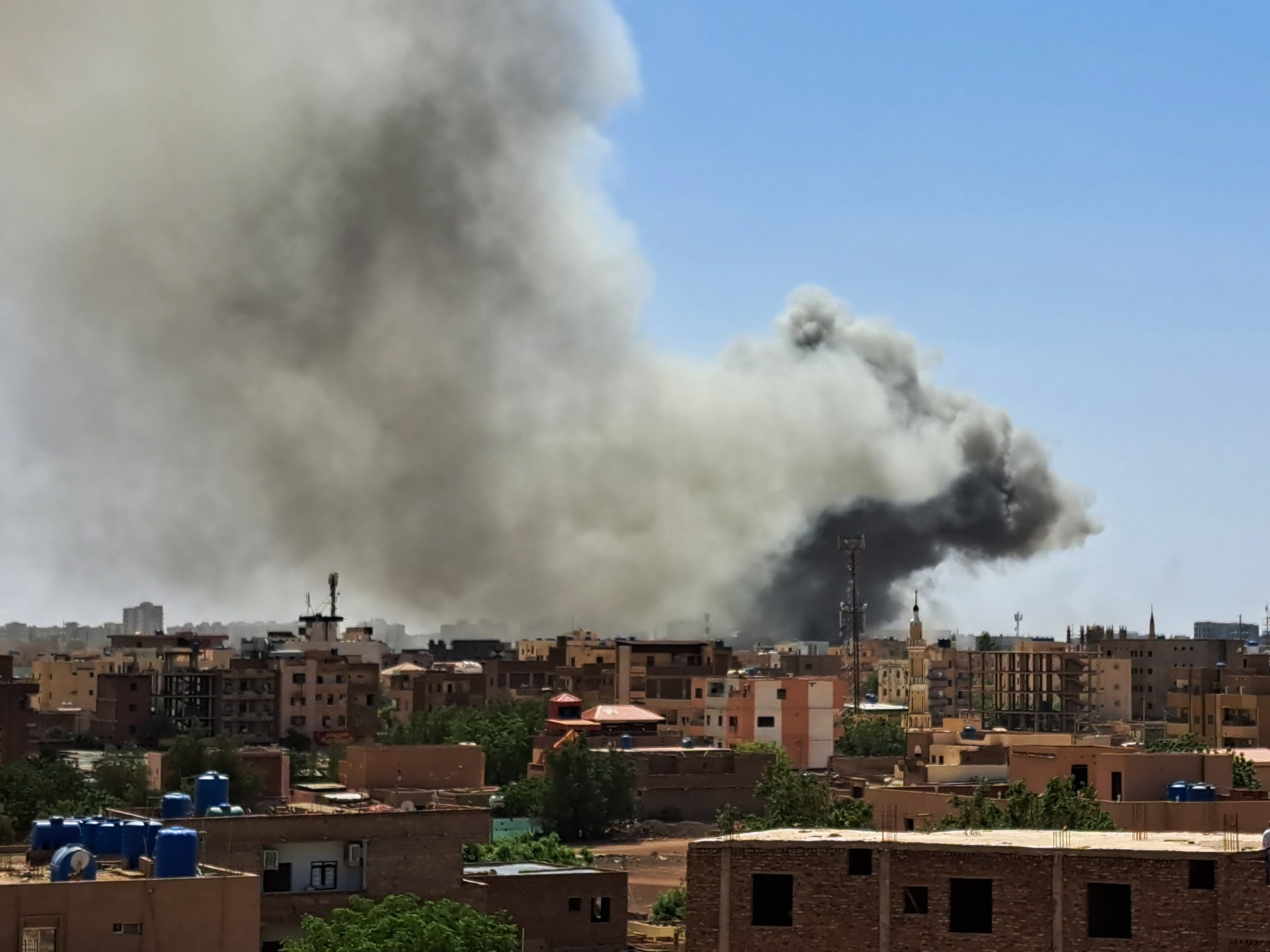Fighting intensified in the Sudanese capital Khartoum on Sunday after the end of the truce between the army and the Rapid Support Forces. While Riyadh and Washington called on both sides for a new ceasefire agreement, the governor of the western Darfur region declared the region a disaster area.
The ceasefire took effect on May 22 and ended on Saturday evening, contributing to a reduction in fighting and limited humanitarian access, but the two sides have repeatedly violated this agreement, as has been the case with all previous ceasefires agreed to by the parties to the conflict in Sudan since the start of clashes in mid-April.
The correspondent of Al Jazeera said that Khartoum witnessed clashes in several areas, the most violent near the Mint, and areas south and east of the capital witnessed mutual shelling with heavy and light weapons between the army and the Rapid Support.
Heavy shelling south of Khartoum resulted in 5 deaths and 26 injuries, as a result of artillery shells falling in the neighborhoods of Al-Azhari and Mayo.
A medical source at Bashaer Hospital told Al Jazeera that the hospital received the dead and wounded in the bombing, which is the second of its kind in days, and that it suffers from a shortage of medical teams and operational materials.
Army warplanes also bombed gatherings of the Rapid Support Forces in the areas of Bahri, Omdurman and al-Juraif in the east.
While the Rapid Support Forces said that they shot down a fighter jet in the Bahri area, while sources in the army confirmed that the plane suffered a malfunction and landed in the Wadi Sedna military area without its crew suffering any injuries, as he put it.
The seven-week conflict has killed hundreds and injured thousands of civilians, displaced nearly 7.1 million people within the country and 2,400 fled to neighbouring countries.
Abduction of activists
In a related context, the resistance committees in Khartoum said in a press statement that what they described as the Rapid Support militias kidnapped some members of the resistance committees in the capital.
"The Rapid Support Militias kidnapped Mahdi Hassan, a member of the Taif Resistance Committees, and Ahmed al-Hadi, a member of the Al-Jarif West Resistance Committees," the statement said.
The committees condemned "the continued approach of kidnapping and enforced disappearance of citizens in the Rapid Support Detention Centers," and held what they described as militias fully responsible for the safety of the kidnapped committee members.
Darfur Nakba
The governor of the Darfur region, Minni Arko Minawi, declared the region a disaster area, and said that the region needs urgent humanitarian aid, and called - in a tweet via Twitter - the international community to speed up the relief of the region across its land borders.
The governor of the region accused what he called sinful hands of continuing to commit crimes against civilians, stressing the existence of violations he described as grave in the cities of Kutum and El Geneina in the west of the region.
For his part, Sudanese army spokesman Nabil Abdullah denied – to Al Jazeera – reports of the fall of the city of Kutum in North Darfur state in the hands of what he described as rebels (Rapid Support).
The military spokesman accused the support forces of attacking the city, and confirmed the army's response to them, and this comes in light of reports of fierce battles between the two sides there.
Calls for calm
Politically, Saudi Arabia and the United States have called on the Sudanese army and the Rapid Support Forces to reach an agreement on a new ceasefire, and to effectively implement it with the aim of building a permanent cessation of military operations.
A Saudi foreign ministry statement said Riyadh and Washington were keen to continue talks with the Sudanese negotiating delegations.
The ministry said in a statement that Saudi Arabia and the United States are ready to resume official Sudanese talks, noting that the army and rapid support delegations are still present in the city of Jeddah despite the suspension of talks and the end of the ceasefire.
The Saudi Foreign Ministry statement stressed that the parties to the conflict must abide by the Jeddah Declaration and protect civilians in Sudan.

